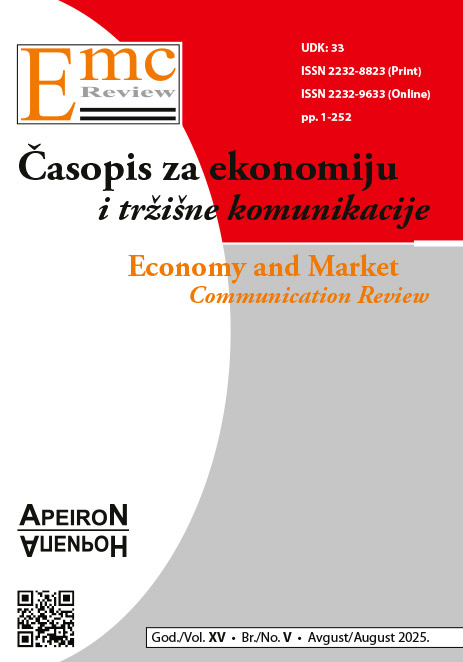BRIDGING THE AI GAP: CHALLENGES AND OPPORTUNITIES IN THE ADOPTION OF AI IN THE CROATIAN HOSPITALITY AND TELECOMS INDUSTRY
DOI:
https://doi.org/10.7251/EMC250V157LKeywords:
Artificial Intelligence, operational processes, hospitality industry, telecommunications industryAbstract
This study analyses the implementation of Artificial Intelligence (AI) and its impact on operational processes in the Croatian hospitality and telecommunication industry. By applying a qualitative research methodology, the study reveals a significant gap in the adoption of AI in these sectors. The key findings show that telecoms companies are leading the way in the integration of AI, while the hospitality industry is lagging behind. Factors influencing AI adoption include ownership structure, market dynamics and cultural influences. The results show that AI is improving customer service, data analysis and operational efficiency in the industries analyzed. Although both industries recognize the potential benefits of AI, they are approaching implementation differently, with the telecoms industry making greater progress. The study also looks at challenges such as implementation costs and the need to educate and train employees, which can be critical to the successful adoption of AI. Importantly, AI is seen as a tool that complements, rather than replaces, human resources. This study contributes to understanding the role of AI in Croatian industry and provides insights for future implementation strategies.
